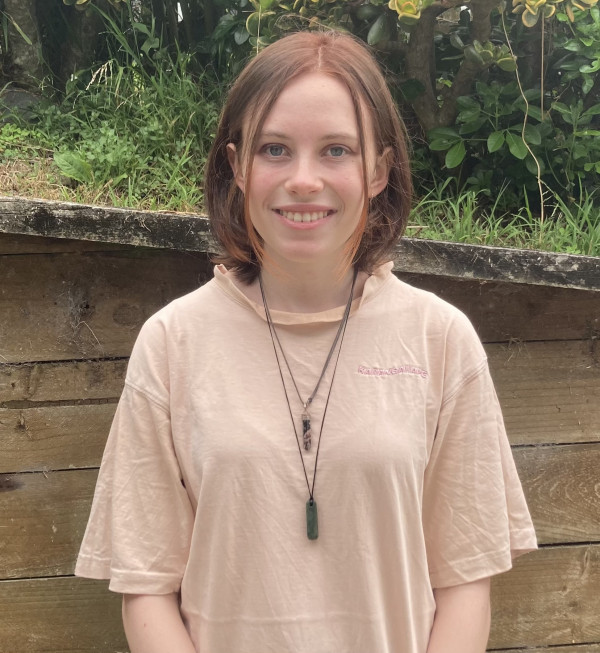By Anna Whyte and Mandy Te
Teenagers under the age of 18 can join the army, work, drive, pay taxes and leave home - so why can’t they vote?
That’s a question being asked by youth-led group Make It 16. The group has been calling for the voting age to be lowered to 16.
In 2020, the group took its case to the High Court.
Make It 16 argued that parts of the Electoral Act 1993 and the Local Electoral Act 2001, which sets the lowest voting age at 18 was “inconsistent” with the right to be free from age discrimination, as part of the New Zealand Bill of Rights Act 1990.
The group asked for a Declaration of Inconsistency. This is a formal statement made by a court that says a rule is inconsistent with fundamental human rights. In this case, Make It 16 believes that teenagers under 18 not being allowed to vote is a breach of fundamental human rights.
But the High Court found that although setting the voting age at 18 did discriminate against 16 and 17 year olds, it was a “limitation on the right against age discrimination that was justified in democratic society” and voting age provisions did not breach the New Zealand Bill of Rights Act 1990.
Make It 16 later took its case, between itself and the Attorney-General, to the Court of Appeal.
In a judgment released on Tuesday, the Court of Appeal dismissed the group’s case and upheld the High Court’s decision.
Make It 16 co-director Cate Tipler says while it was not the decision it hoped for, the group was still excited to take its next steps.
“We hope to take the court case to the Supreme Court,” Tipler, 16, says.
“Voting is a fundamental human right.”

Make It 16 co-director Cate Tipler, 16, says the group will keep fighting for a democracy where young people’s voices are heard. Photo: Supplied
Teenagers under 18 were driving, working full-time and paying tax, Tipler says.
Political decisions being made now would affect young people most in the long run, Tipler says.
The result of the group’s appeal was not the end, they say.
“This is barely the beginning … next year, there will be the local elections and youth parliament … we look forward to fighting for a democracy where young voices will be heard.”
Despite the group’s appeal being dismissed, there was a small win, Tipler says.
The Court of Appeal judgment found the Attorney-General had failed to “discharge the burden of proof” to justify the existing age limit.
Looking at the justification of limiting the rights of 16 and 17 year olds was required, the judgment found.
“The matter is intensely and quintessentially political involving the democratic process itself,” the judgement says.
“Further the matter is very much in the public arena already including being part of a recently announced review of electoral law.
“We choose to exercise restraint and decline the application for declarations.”
Make It 16 volunteer Sanat Singh, 17, says lowering the voting age was important to him because he was around his peers every day who went through a “slate of issues” they were unable to solve.
Young people need a seat at the table and to give voices to topics such as climate change, he says.
“Regardless of what this means, we’re still in this fight,” Singh says. “We’re still going to push.”
Justice Minister Kris Faafoi says "the Court of Appeal found that the age we decide is quintessentially a political decision".
With an electoral review out at the moment, Faafoi says "people who believe that we should make changes in the system have got a pretty fundamental opportunity to make sure they can make change if they advocate".
Faafoi says he does not have a personal view on the voting age and "depending on who you speak to, I think people can make a pretty good argument".
"People should look at the review as an opportunity to try and influence that."
Green Party electoral reform spokesperson Golriz Ghahraman says “although the Court’s decision is restricted to whether or not the limitation on the right to vote is justified in law, it again made clear that the current law does breach the rights of 16 and 17 year olds”.
“Parliament can and must alleviate that breach,” Ghahraman says.
“More than ever, the decisions made by politicians today will impact the world young New Zealanders inherit from us," Ghahraman says.
“Young people in Aotearoa and around the globe are demanding change so they and future generations have a better world to live in. This includes action to ensure a liveable planet, a thriving natural environment, and affordable homes.”
Sixteen and 17 year olds deserve to have a say in the decisions that affect them, Ghahraman says.
“Not only would this change create a more representative democracy, but it would also provide more opportunities to engage young people in politics while they’re at school.
“We know once people enrol, voting becomes a life-long habit, which is great for the long-term health of our democracy.”
Read the full judgment here.
More stories:
Nzers too angry, Human Rights Commission launches Covid campaign to get us to chill
Covid update: Auckland moves to orange traffic light setting on Dec 30